Growing strawberries (large-fruited garden strawberries) from seeds is rarely found in the practice of amateur gardeners. Breeders use this method to obtain new varieties; it is unsuitable for amateur gardening, and only a few enthusiasts try to grow strawberries this way.
Advantages and disadvantages of seed propagation of strawberries
The advantages of the method are as follows:
- in 3 months you can get much more seedlings than when propagating with a mustache;
- strawberries grown from seeds do not contain viruses transmitted during vegetative propagation.
Disadvantages of seed growing.
- The most important disadvantage of this method is the very large split in varietal characteristics in plants grown from seeds. This applies to both regular and remontant strawberries. Varietal qualities change greatly, usually in the direction of deterioration; completely varietal characteristics are not transmitted to the offspring. This is due to the fact that strawberries are not self-fertile enough and for better pollination, several varieties are grown on the plot at the same time. Cross-pollination does not affect the varietal characteristics of berries and runners in any way, and the seeds contain genes of the varieties that participated in pollination, hence the leapfrog in the resulting offspring.
- Seedlings are very sensitive to microclimate, so growing them at home is more difficult than other crops (tomatoes, eggplants, peppers).
For these reasons, strawberry seeds are not often sold in garden centers. Remontant strawberries (small-fruited) are another matter. When obtained from seeds, it completely transmits all varietal characteristics, so its seed propagation is both practical and profitable.
Strawberry seeds: characteristics
From one berry you can get a large amount of seed material, which is enough for more than one bed. The seeds have a very high germination rate: 96-98%. It is believed that they are stored for up to 4 years, but unlike vegetables, germination capacity by the end of the storage period decreases to almost zero, only a few sprout.
Fresh seeds germinate within 7-10 days; store-bought seeds may not germinate. This is due either to improper storage or to the expiration date.To be on the safe side, it is better to buy several bags from different companies and in different stores, then something will probably come up. When purchasing strawberry seeds in winter, along with peppers and eggplant seeds, they are sown immediately.
How to collect strawberry seeds
To grow strawberries at home, it is better to get your own seeds. They are taken from the largest berries of the first wave.
Select completely reddened strawberries (they should not be overripe and soft, but just red), pick and trim the top and tip of the berry, since the seeds there are small and, often, unripe.
The middle part is placed in a bowl of water and kneaded. The seeds drown, and the pulp remains in the water column; it is drained. To completely remove the pulp, the seed material is washed 3-4 times.
In specialized literature, there is often a recommendation to ferment berries in a bowl of water for 2 days to better separate the seeds from the pulp. This must be done very carefully. For fermentation, take a small container, when the mass turns sour, wash it immediately. If you miss this moment, the seeds may suffocate and die (since the fermentation microbes have consumed all the oxygen). Moreover, mold should not be allowed to appear on the surface of the water, which covers everything with a thin film, and air does not enter the water column. In this case, the seeds lose their viability. At home, it is better and easier to simply rinse the pulp.
The seeds are laid out in a thin layer and dried for 2 weeks in diffuse sunlight or in the shade, avoiding direct sun.
Dried seeds are packaged in paper bags and stored at home until January.
Preparing seeds for sowing
Before sowing, strawberry seeds are stratified for 14 days, placing them on the bottom shelf of the refrigerator.Stratification can be done in two ways:
- placing paper bags in the refrigerator;
- seeds already sown in the ground are covered with a cloth and stratified directly in the seedling box.
With any method of stratification, it is necessary to ensure a sufficient supply of oxygen to the seeds, otherwise they will suffocate and die. That is why the seedling box is covered with breathable material, and not with film, although it can be done after making several holes in it.
Soil preparation
When growing strawberries at home, soil is taken from your own plot from a clean, weed-free bed. If it is very dense, add sand in a ratio of 1:3. If the soil is taken from a bed where pumpkins grew, then add a little herbal fertilizer.
Store-bought soils are not suitable for strawberry seedlings. They are highly saturated with fertilizers, and an excessive concentration of salts is harmful to plants. In such soil, strawberries may not sprout at all, or the seedlings will quickly die.
Sowing
Before sowing, the soil is moistened; it should be soaked by 3-4 cm. At home, sowing is carried out in February, along with eggplants and peppers; if there is a heated greenhouse, then sow in March. The seeds are evenly distributed over the surface of the soil with a match or toothpick, lightly pressed, but not sprinkled. The sown pots or boxes are covered with glass or cloth. You can cover it with film, but you need to make sure that there is always enough oxygen in the container.
The seedling box is placed in a bright, warm place, but not in direct sunlight or in the dark, otherwise the strawberries will not sprout. Shoots appear in 7-10 days.
Seedling care
Growing crops in apartment conditions is not an easy task.
Air humidity
The air in the room is very dry for her, but the lighting makes things worse: the lamps not only dry the air, but also heat the plants themselves. Seedlings in the cotyledon stage need high environmental humidity, and if the air is dry, then the seedlings that have begun to grow dry out.
The most severe damage to strawberries at home occurs when they are grown on purchased nutrient soils and at low air humidity.
For proper development, seedlings require a humidity of 90-95%. To avoid attacks, seedlings are grown under a transparent cap (glass, cut plastic bottles, film). Holes are first made in the material so that the seedlings do not suffocate. When growing in an apartment, the main thing at first is not to dry out the seedlings. The box with seedlings is ventilated once every 2-3 days for 15 minutes.
Light and temperature
At home, seedlings in February-March may not have enough light on the windowsill, so whenever possible, the box is placed in a glassed-in loggia or greenhouse, placing it behind pots of peppers and eggplants (so that the seedlings are not in direct sunlight). Strawberries, even in the cotyledon stage, are not afraid of frost down to -3°C, and if they are already hardened, they can withstand temperatures down to -5°C without being damaged.
When growing cabbage and onions in seedlings, strawberry seedlings are placed next to them. They all need the same conditions to grow: cool, high humidity and enough light. As soon as the temperature rises above 0°C, the box is taken out to the loggia or greenhouse and left there until the evening, and if at night it is not lower than -3°C, then overnight. To know exactly when to harvest the seedlings, place a bottle of water nearby; when it starts to freeze, the seedlings are brought indoors.It is better for seedlings to stand in a greenhouse at a temperature of 1-2°C than in a dark room at 20°C.
Watering
It is better to water strawberries with snow melt water. Too hard or chlorinated water is not suitable for it; such watering may kill the seedlings. If at home it is not possible to water with melt water, then before the procedure tap water is left to settle for 2-3 hours. When using unsettled water, a yellowish-white bacterial-limescale deposit forms on the soil. In such areas, the concentration of salts is increased and the seedlings that fall into the plaque zone dry out. As soon as yellowish-white spots appear on the ground, they are carefully removed with a match, then the threat of death of the seedlings is temporarily removed.
Water the strawberries with a syringe, otherwise under a large stream of water the seedlings will swim with soil.
Caring for grown seedlings
When grown in an apartment, seedlings grow rather slowly, only after 10-15 days do they appear the first leaves. When trifoliate leaves begin to appear, the protective cap can be removed from the seedlings: the plants are strong enough, they no longer require such high humidity (although it is desirable), they can tolerate dry air. You can also water at this stage with regular tap water. Plant picking is not carried out, since seedlings when grown at home do not grow too large, and unnecessary damage to the roots makes it difficult for strawberries to survive in a permanent place in the future.
Planting strawberries in a permanent place
By mid-May, the seedlings will be about 3 months old, they will have grown, and it will be convenient to replant them.
It is recommended to keep very small bushes at home for a while, otherwise, when planted in open ground, they will float with soil during watering.
The box with seedlings is filled to the brim with water to make it easier to untangle the roots; carefully, without allowing the stems to bend, remove the plants and plant them in a permanent place.
Strawberries grown from seeds are planted compactly 20x40 cm, plant survival rate is 90-95%. They begin to bear fruit the next year.
The method of growing a crop from seeds at home is completely unsuitable for obtaining varietal strawberries. It is suitable for those who have a lot of free time and want to experiment. The results of such experiments are almost 100% unsuccessful: strawberries lose their varietal qualities, although there are exceptions. In any case, we can try, what if we manage to develop a new variety?!
Other useful articles on growing strawberries:
- Strawberry care. The article describes in detail how to care for a strawberry plantation from early spring to late autumn.
- Strawberry pests. What pests can threaten your plantation and how to effectively combat them.
- Strawberry diseases. Treatment of plants with chemicals and folk remedies.
- Strawberry propagation. How to propagate strawberry bushes yourself and what mistakes gardeners most often make.
- The best varieties of strawberries with photos and descriptions. A selection of the newest, most productive and promising varieties.
- Growing strawberries in a greenhouse. Growing technology and all the pros and cons of this matter.
- Planting strawberries in open ground. Are you going to tackle strawberries? Then this is the very first article you need to read.
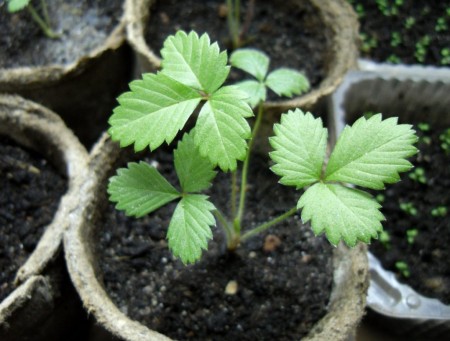
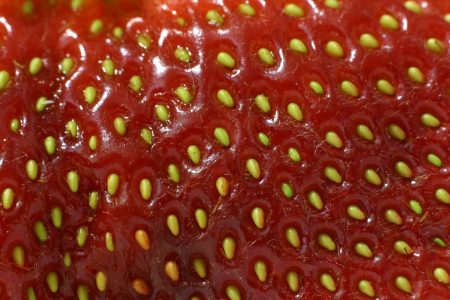
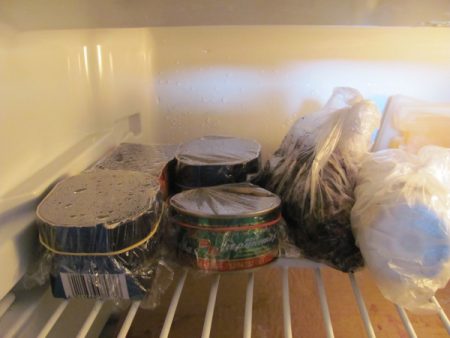
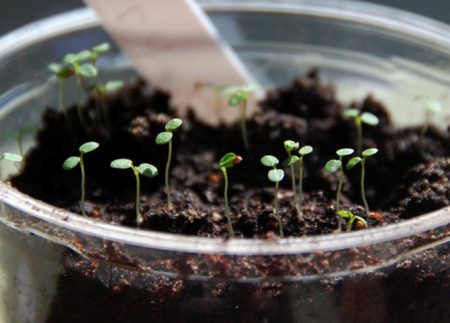
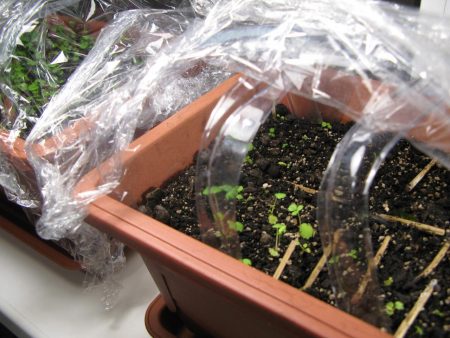
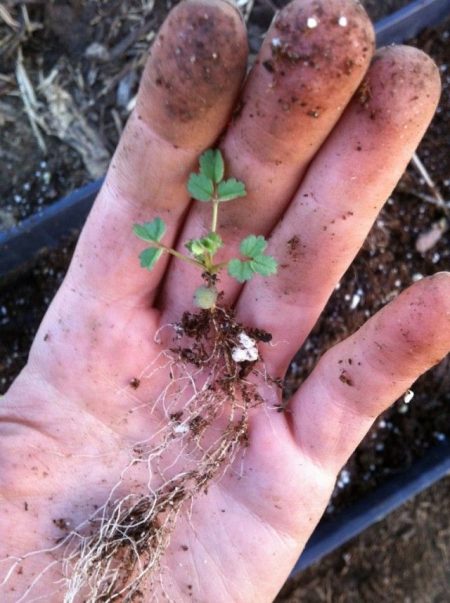

 (6 ratings, average: 4,83 out of 5)
(6 ratings, average: 4,83 out of 5)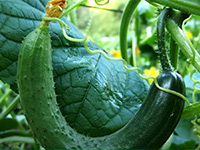 CUCUMBERS NEVER GET SICK, I'VE BEEN USING ONLY THIS FOR 40 YEARS! I SHARE A SECRET WITH YOU, CUCUMBERS ARE LIKE THE PICTURE!
CUCUMBERS NEVER GET SICK, I'VE BEEN USING ONLY THIS FOR 40 YEARS! I SHARE A SECRET WITH YOU, CUCUMBERS ARE LIKE THE PICTURE!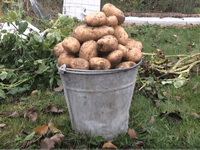 You can dig a bucket of potatoes from each bush. Do you think these are fairy tales? Watch the video
You can dig a bucket of potatoes from each bush. Do you think these are fairy tales? Watch the video
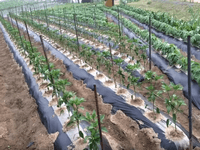 How our fellow gardeners work in Korea. There is a lot to learn and just fun to watch.
How our fellow gardeners work in Korea. There is a lot to learn and just fun to watch. Eye trainer. The author claims that with daily viewing, vision is restored. They don't charge money for views.
Eye trainer. The author claims that with daily viewing, vision is restored. They don't charge money for views.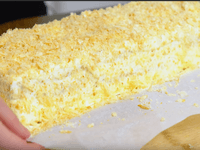 A 3-ingredient cake recipe in 30 minutes is better than Napoleon. Simple and very tasty.
A 3-ingredient cake recipe in 30 minutes is better than Napoleon. Simple and very tasty. Therapeutic exercises for cervical osteochondrosis. A complete set of exercises.
Therapeutic exercises for cervical osteochondrosis. A complete set of exercises. Which indoor plants match your zodiac sign?
Which indoor plants match your zodiac sign?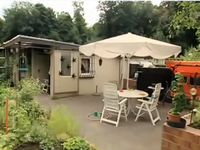 What about them? Excursion to German dachas.
What about them? Excursion to German dachas.